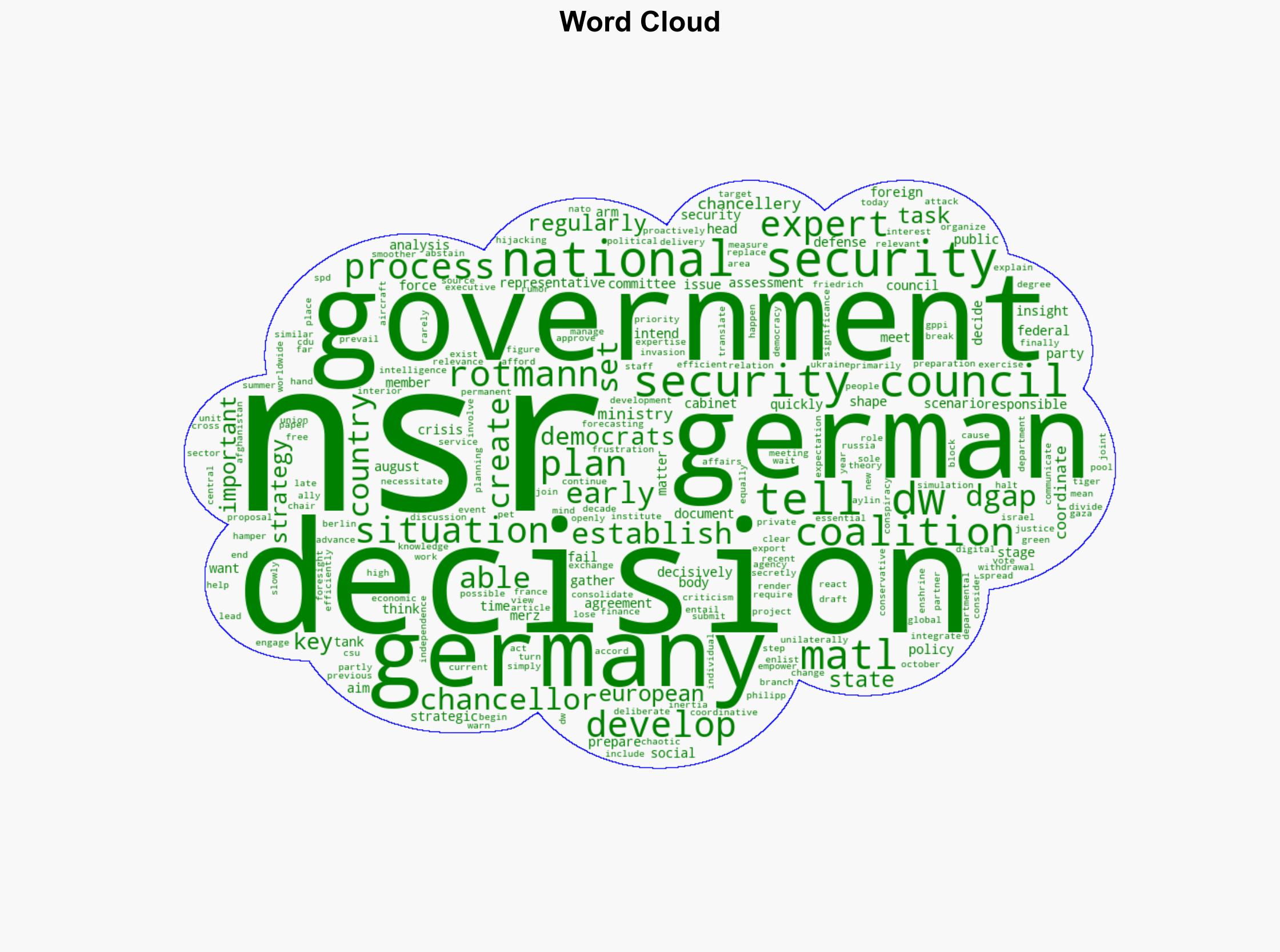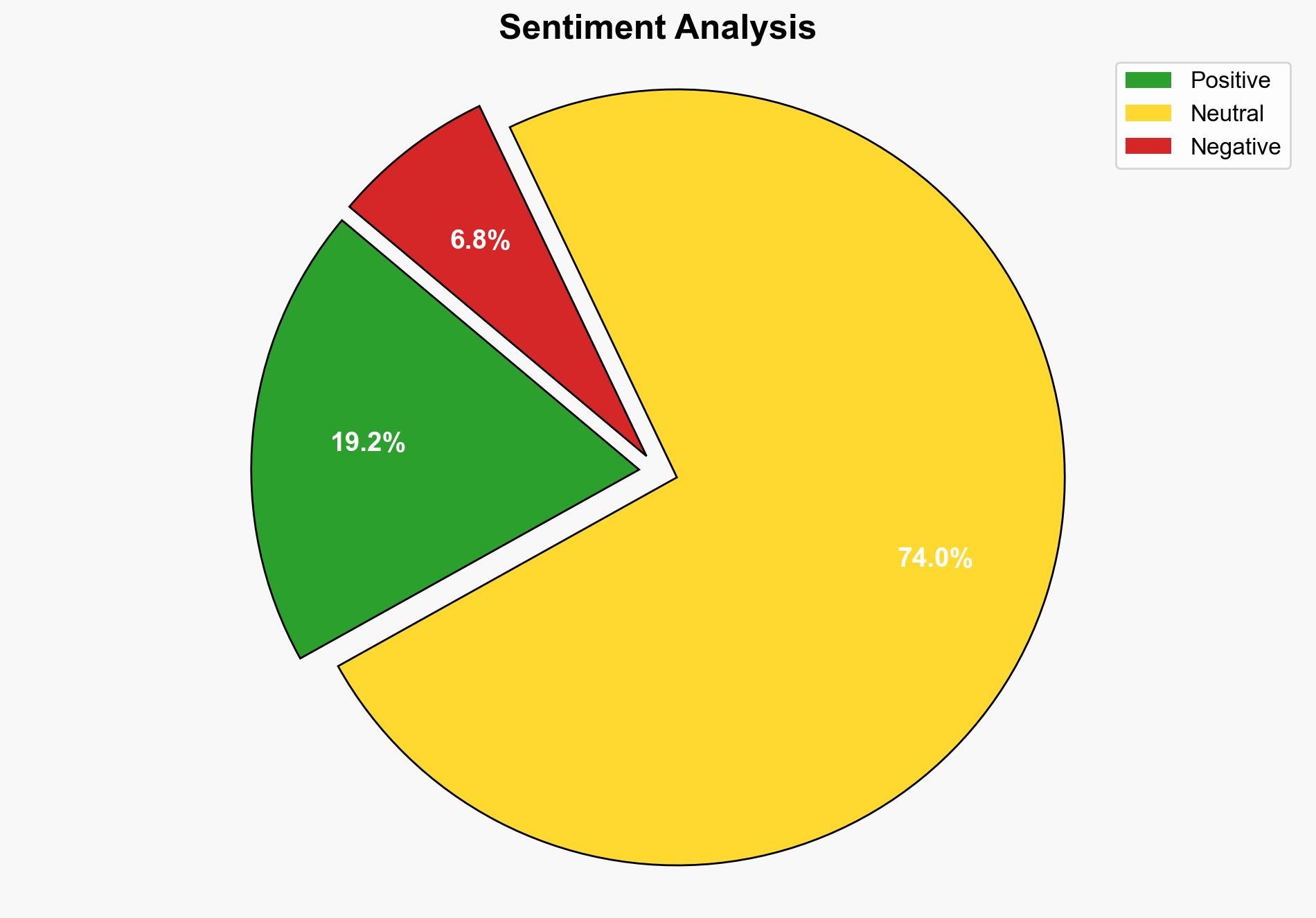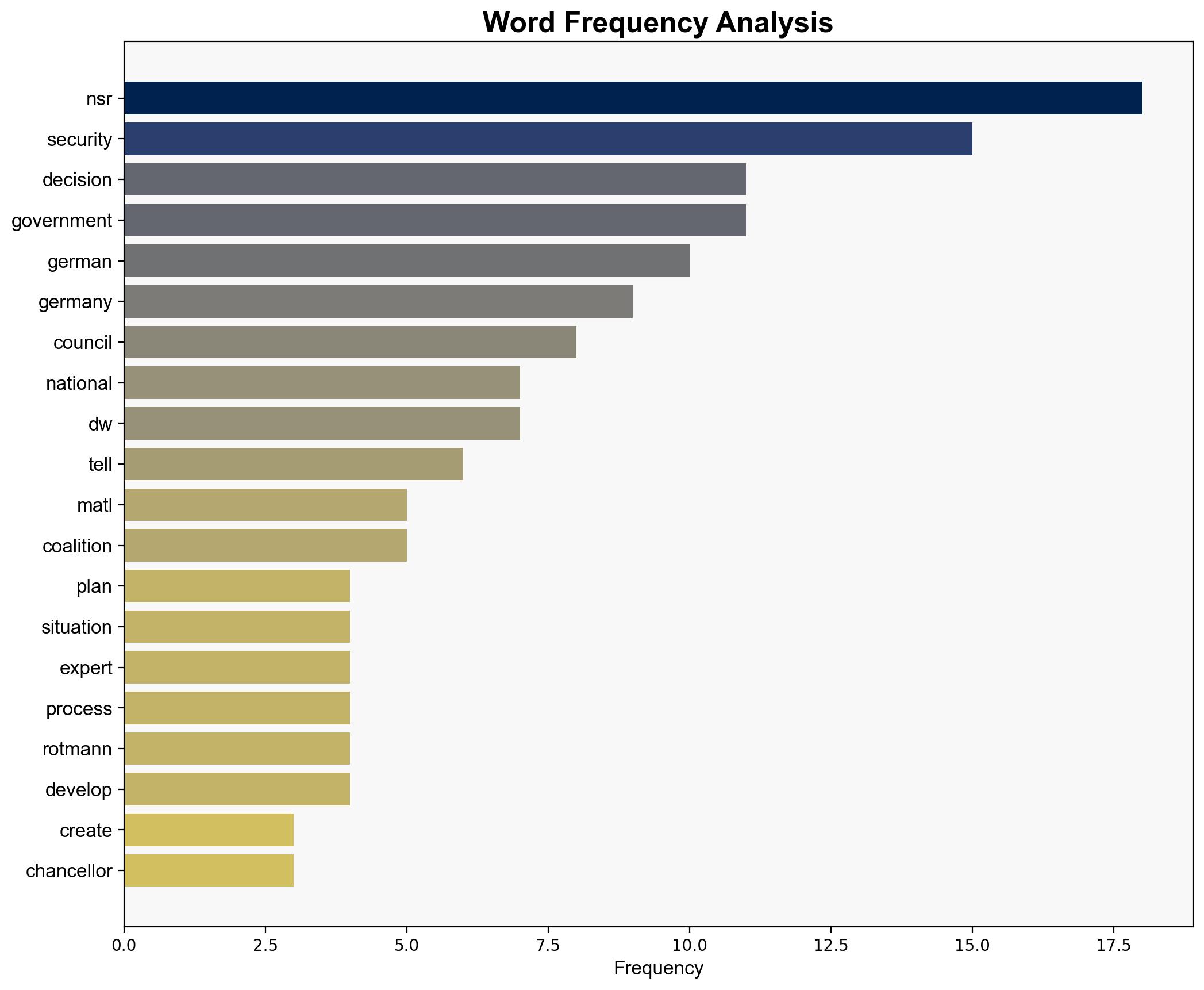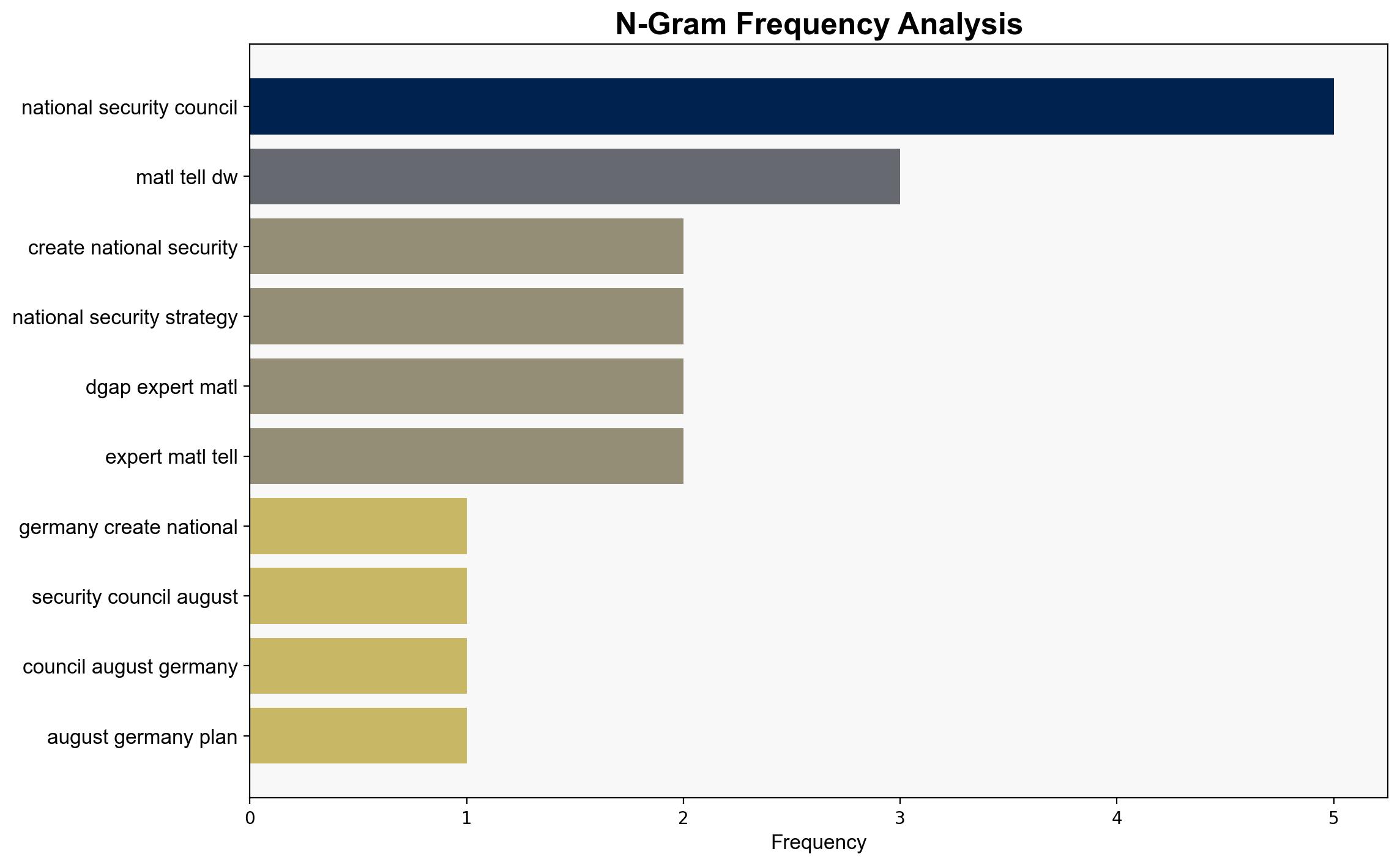Germany to create national security council – DW (English)
Published on: 2025-08-16
Intelligence Report: Germany to create national security council – DW (English)
1. BLUF (Bottom Line Up Front)
Germany’s establishment of a national security council (NSR) is a strategic move to enhance its decision-making capabilities in security matters. The most supported hypothesis is that this initiative aims to streamline and centralize Germany’s security policy-making process, allowing for more decisive action in crises. Confidence level: Moderate. Recommended action: Monitor the implementation process and assess its impact on Germany’s role in European and global security dynamics.
2. Competing Hypotheses
1. **Hypothesis A**: The creation of the NSR is primarily intended to improve Germany’s internal coordination and response to security threats, reflecting a shift towards a more proactive and unified national security strategy.
2. **Hypothesis B**: The NSR is a political maneuver to consolidate power within the Chancellor’s office, potentially sidelining other governmental bodies and increasing Germany’s unilateral decision-making in security matters.
**Structured Analytic Technique Used**: Analysis of Competing Hypotheses (ACH) 2.0
– **Hypothesis A** is supported by the NSR’s design to integrate various ministries and external experts, suggesting a genuine effort to enhance coordination.
– **Hypothesis B** is less supported due to the inclusion of diverse stakeholders, which indicates a collaborative approach rather than centralization of power.
3. Key Assumptions and Red Flags
– **Assumptions**: It is assumed that the NSR will function as intended without bureaucratic delays or political interference. Another assumption is that all stakeholders will cooperate effectively.
– **Red Flags**: Potential resistance from existing governmental bodies fearing loss of influence. The NSR’s effectiveness could be hampered by political infighting or lack of clear mandate.
– **Blind Spots**: The impact of the NSR on Germany’s relationships with EU and NATO partners is not fully explored.
4. Implications and Strategic Risks
– **Implications**: A well-functioning NSR could position Germany as a more decisive leader in European security, potentially influencing EU and NATO policies.
– **Strategic Risks**: If the NSR leads to unilateral actions, it could strain Germany’s relationships with key allies. Internal political dynamics may also affect the NSR’s operations.
– **Cascading Threats**: Ineffective implementation could lead to delays in crisis response, impacting Germany’s national security and its standing in international forums.
5. Recommendations and Outlook
- **Monitor** the NSR’s development and initial operations to evaluate its effectiveness and impact on Germany’s security policy.
- **Engage** with German policymakers to ensure alignment with EU and NATO objectives, mitigating risks of unilateralism.
- **Scenario Projections**:
– **Best Case**: The NSR enhances Germany’s security posture and strengthens its leadership role in Europe.
– **Worst Case**: The NSR becomes a bureaucratic entity that complicates decision-making and alienates allies.
– **Most Likely**: The NSR improves coordination but faces initial challenges in balancing diverse interests.
6. Key Individuals and Entities
– Friedrich Merz
– Aylin Matl
– Philipp Rotmann
7. Thematic Tags
national security threats, cybersecurity, counter-terrorism, regional focus




